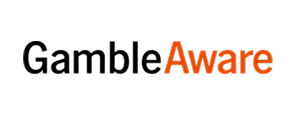Responsible Gambling

What Is Responsible Gambling?
Signs of Gambling Addiction
The signs of gambling addiction can be hard to decipher, mostly because it is an addiction that often leaves people pretending nothing has changed in their lives. However, an addiction may develop behind closed doors, and you should always be ready for any indicators that someone you know might have it:
-
🚩 Obsession with Gambling
If the person you have known for a long time seems overly fixated on their gambling habits, this may be a sign they are becoming dependent on it. The obsessive influence of gambling can manifest in people thinking about their next game or may even lead to someone skipping an important meeting or date in order to engage in their next gambling session. This level of obsessive behavior can be interpreted as an addiction. -
🚩 Can’t Stop Gambling
Sometimes, even the most dedicated and addicted gamblers attempt to cut off the use of online casino apps and limit their time at the casino table, especially if they are playing online. These efforts are often accompanied by the feeling of stress, anxiety, and frustration at the inability to give up their habit once and for all. However, if all of their efforts are useless and gambling keeps coming back into their lives as a harmful habit, this may be a sign they need serious help. -
🚩 Gamble for Happiness
As human beings, we have many reasons to be happy. Sometimes, our joy comes from winning a large amount at a casino table as we share our victories with those who supported us along the way. However, if you realize that gambling has remained the only light in your otherwise stressed and unfulfilling existence and you cannot rely on other sources of enjoyment as you start your day, this may indicate that gambling is no longer an innocent way to spend time. -
🚩 Break the Law to Gamble
Not all gambling addicts succumb to the life of crime and begin to lie to other people in order to recover from their previous losses or improve their financial situation. However, in more severe cases, people with a serious gambling problem may violate the existing laws and regulations for the sake of continuing the game, which includes borrowing money without the hopes of returning it or stealing money for the next gambling session. -
🚩 Financial Problems
Even if you started out as a wealthy gambler with lots of money to spare and a VIP level of casino engagement that made you a high roller at your casino, your budget is not unlimited. Sooner or later, you will be confronted with money issues. When this happens, gambling addicts will do whatever it takes to restore their financial situation and hide their money problems from others. -
🚩 Trying to Hide Gambling Problems
It is said that truth will always find a way to reveal itself. However, in the case of gambling addicts, truth may stay hidden for a very long time. People who suffer from gambling issues will do everything in their power to sweep their problem under the rug. They may even go as far as to exaggerate their luck or pretend that nothing of consequence is happening to reassure their loved ones they have their addiction under control. -
🚩 Denying That It Is a Problem
A pattern of denial is something that all gamblers with an addiction have in common. From a psychological standpoint, it is understandable: nobody wants to acknowledge their defeat when it comes to their shameful habits and obsessions. Refusing to acknowledge the plain truth of an addiction is not something out of the ordinary, especially if the gamblers don’t want other people to feel sorry for them or confront them with inconvenient questions. -
🚩 Excessive Mood Swings
Having extreme mood swings is not something that can be instantly attributed to the category of addiction signs. However, if you have a gambling problem, it may show itself in the way you behave - giddy when you win a significant sum at the casino or sad when the outcome of the game is not what you have been hoping for. You may also experience rapid, dramatic mood shifts when the budget you have collected for the game has vanished sooner than you expected or when the specific gambling strategy has not been successful.
How to Gamble Responsibly

Set a Budget
Take Breaks
Don’t Try to Chase Your Losses
Don’t Gamble Under Alcohol or Other Substances
Be Aware of the Odds
Stop Gambling When You Are Getting Emotional
Find Help If You Struggle with Gambling
Where to Get Professional Help
Although having a self-exclusion limit may be of assistance to some Arab gamblers, it is not a universal method that will help you overcome addiction if the problem has become too serious to deal with on your own. When everything else has failed you and you see no way out, you can always rely on qualified professionals in the field of psychology and therapy. These professionals are hired by charity organizations that help gamblers stay in charge of their spending habits and manage their gambling issues at a moderate pace.

BeGambleAware

Gordon Moody Association














